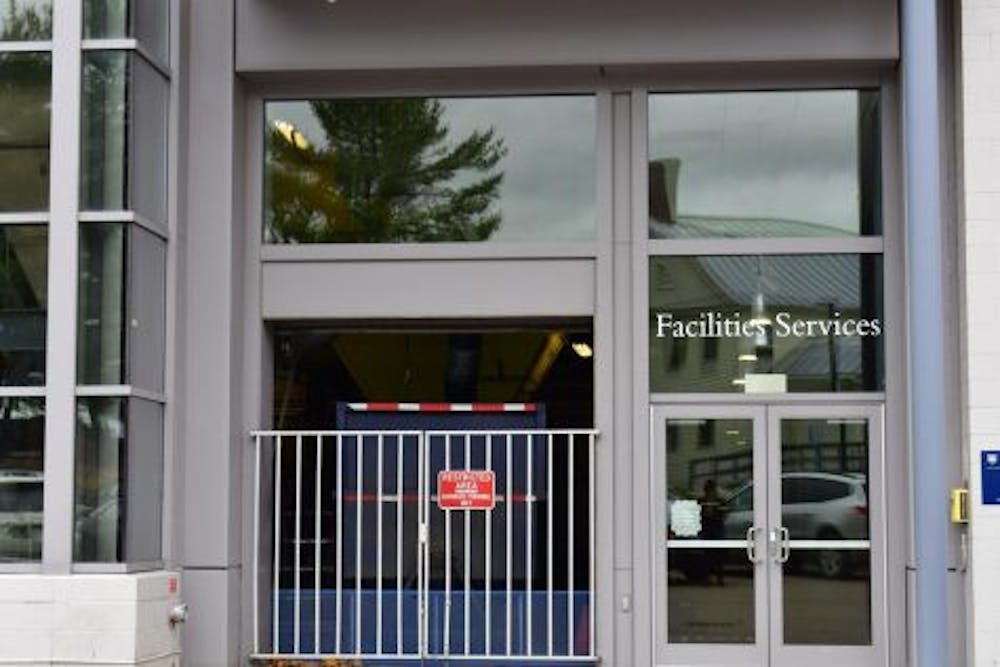Whether called “shelter-in-place” or “stay-at-home,” local and state-wide orders across the country all have the same blaring message: leave your home as little as possible.
Early last week, Governor Phil Scott followed suit with a “Stay Home, Stay Safe” executive order that went into effect on Tuesday, March 24. The directive is one of 37 state orders to limit citizens’ movement in an effort to curb the spread of the novel coronavirus.
Scott’s order came after many college employees had already transitioned to remote working. Faculty and administrators were settled into work via Zoom and some professors had reportedly already experimented with creative backgrounds for their first classes (think a photo of the second floor of Davis Library for “continuity’s sake” or an iconic Zoom meme).
With many employees working from their living rooms, staff have taken the greatest hit from Scott’s order.
Karen Miller, the vice president for human resources, and David Provost, the college’s executive vice president for finance, reached out to staff with the college’s game plan shortly after Scott’s announcement. They had anticipated stricter measures restricting resident mobility.
“They’re now implementing the plan they told us was going to happen if things got worse,” said Patti McCaffrey, an Atwater cook whose work has been modified since the executive mandate.
The college identified “essential workers” that must continue reporting to work — on a limited basis — in order to provide for the 120-odd students that remain on campus. Essential workers who must resume their work on campus include health care staff, public safety, facilities services, dining services, and information technology support, according to the staff-wide email sent out last week.
From plumbers to student mail staffers, there are a number of workers that are integral to the functioning of the college, said Mike Moser, director of facilities services — making them “essential workers” by definition. The college’s hope is to have these staff members work on a rotational basis to limit the number of them on campus at any one time.
“In short, we have approximately 125 students on campus that need our service support,” Moser said in an email to The Campus. “We’re aligned to provide that support and continue to adjust our plans daily as this situation evolves.”
He said that facilities wouldn’t have the capacity to adapt to such a dynamic situation save for the college’s new Covid-19 compensation plan. The plan includes a 21-day Covid-19 Pay Bank that increases employees’ allotted sick days.
Before the governor’s executive order, dining services had a different plan of action. With only one dining hall remaining open, around 70 dining employees were set to lend a hand with facilities, deep-cleaning and doing odd-jobs — like painting — as needed.
In light of the new mandate, this plan is no longer in motion. But barring the previous roadmap to move a number of workers to facilities, the backbone of dining services’ coronavirus-strategy remains intact, according to Dan Detora, executive director of food services. Employees will work in rotational teams of eight to limit their contact with other workers and only one dining hall will remain open.
In the new system, staff will end up working fewer hours. The days they will be forced to take off because of the stay-at-home mandate will come out of their Covid-19 Pay Banks.
After being assigned to teams of eight during their final meeting, dining staff accepted a somber reality: Aside from the seven other workers on their teams, employees did not know when they would see their colleagues and friends again.
“Usually right before Christmas break, when you know you’re not going to see each other for two weeks, we give each other hugs,” said McCaffrey of the Atwater dining staff. “This time, we couldn’t hug each other goodbye.”
“Stay Home, Stay Safe”: stricter guidelines reshape college’s plan for staff

MAX PADILLA
In the new system, staff — including many “essential” facilities workers, will end up working fewer hours. The days they will be forced to take off because of the stay-at-home mandate will come out of their Covid-19 Pay Banks.
In the new system, staff — including many “essential” facilities workers, will end up working fewer hours. The days they will be forced to take off because of the stay-at-home mandate will come out of their Covid-19 Pay Banks.
Comments



